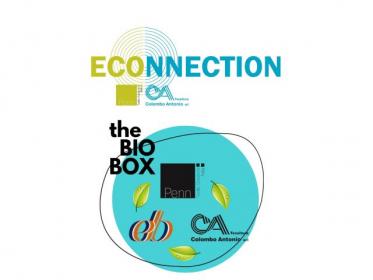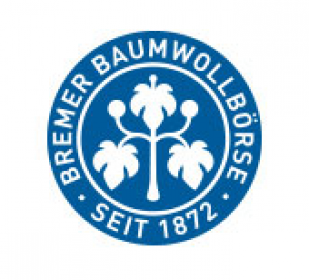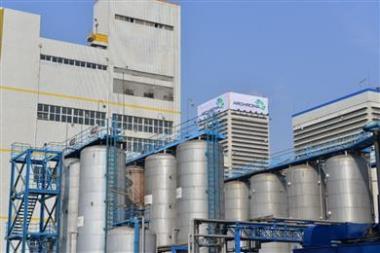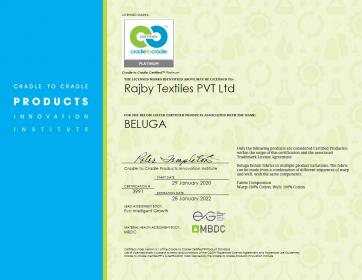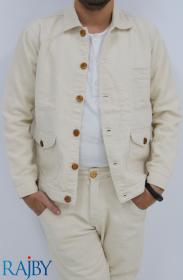Frankfurt Fashion Week: hosting the future of fashion
- Looking to the future – Frankfurt Fashion Week is positioning itself with a consistently sustainable agenda and propelling the transformation of a modern, resource-efficient fashion industry.
The Conscious Fashion Campaign (CFC), working in collaboration with the United Nations Office for Partnerships (UNOP), will be the presenting partner and the Sustainable Development Goals (SDGs) will be a prerequisite for all exhibitors by 2023. And the Frankfurt Fashion SDG Summit by CFC is set to become the leading international conference for sustainability in the fashion world. The future of fashion has begun – and its key players will be coming together in Frankfurt am Main from 5-9 July 2021.
Frankfurt am Main, 2 December 2020. Joining forces to improve the fashion industry: Frankfurt Fashion Week is positioning itself as the host of the future of fashion and actively driving forward the transformation towards a future-oriented, more sustainable fashion and textile industry. All decision-makers looking to instigate this change will be coming together in Frankfurt am Main from 5-9 July 2021. The initiators of Frankfurt Fashion Week – Messe Frankfurt and the Premium Group – have achieved a real coup: Conscious Fashion Campaign, working in collaboration with the United Nations Office for Partnerships, will be the presenting partner. Messe Frankfurt will build on its collaboration with the United Nations Office for Partnerships and establish Frankfurt Fashion week as the platform on which to advance the Sustainable Development Goals and help guide the fashion industry into the 'Decade of Action'.
“Frankfurt will play host to the whole world. We are seeing a very positive response indeed,” confirmed Peter Feldmann, Senior Mayor of the City of Frankfurt am Main, at today’s digital press conference, before going on to say: “The fact that the initiators are able to rethink the concept of a Fashion Week in such a way is extremely impressive and proves that the fashion industry is correctly interpreting the signs of the present and future. The time has come for value creation and values to be reconciled. Consistent alignment with the Sustainable Development Goals is an important step in this direction.”
“Frankfurt Fashion Week aims to play a crucial role in finding solutions for macrosocial challenges and supporting the goals of international politics such as the European Green Deal. The fashion and textile industries are also expected to be climate-neutral by 2050. If we want to achieve this, we all need to pull together. Frankfurt Fashion Week is inviting all initiators and supporters of sustainable concepts and congresses or shows dedicated to sustainability to meet in Frankfurt, partake in discussions and make tangible decisions for the greater good. We will connect the most relevant players and pave the way for a future-proof fashion and textile industry,” says Detlef Braun, CEO of Messe Frankfurt.
“Given its global reach, the fashion industry is uniquely positioned to collaborate and engage on the Sustainable Development Goals, in particular on climate action and responsible production and consumption,” said Annemarie Hou, Acting Executive Director of the United Nations Office for Partnerships. “Frankfurt Fashion Week and the Summit will serve as an important platform for education and engagement of the fashion and textile industry in the Decade of Action,” emphasised Ms Hou.
The aim of Frankfurt Fashion Week is for all exhibitors, participants and partners to align with the Sustainable Development Goals by 2023. The SDGs will also be incorporated into all formats of Frankfurt Fashion Week. This will help to make the UN’s sustainability goals visible and tangible for the Fashion Week audience, therefore bringing its claim, goals and specific proposals for implementation to an international opinion-forming fashion and lifestyle community. During a one-day Frankfurt Fashion SDG Summit presented by Conscious Fashion Campaign, topics like gender equality, clean water, climate protection, social justice and their significance for a forward-looking fashion industry will be examined in greater depth. Another point on the sustainability agenda: Frankfurt Fashion Week is launching a Sustainability Award for outstanding, innovative, sustainable design, alongside other categories with a global appeal for the fashion and textile industry.
"We are committed to setting the wheels of transformation in motion. Not only does the overall mindset have to fundamentally change; the entire industry also needs to have the courage to be transparent and honest. It’s important to see values and value creation as opportunities rather than contentious. We are doing what we do best: connecting the relevant players at all levels. With its ecosystem, Frankfurt Fashion Week will become the enabler. We are creating a platform that will orchestrate industry-wide change. With this as our inspiration, we are also developing our tradeshow formats from a ‘marketplace of products’ to a ‘marketplace of purpose and ideas’,” explains Anita Tillmann, Managing Partner of the Premium Group.
A new start in Frankfurt: In summer 2021 the entire fashion industry will be coming to the metropolis on the Main river to inform themselves, be inspired, discuss, negotiate and celebrate. “There’s a huge need to finally meet in person again, to exchange ideas and be inspired. At the same time, digital tools and formats have become an integral part of the fashion industry,” says Markus Frank, Head of the City of Frankfurt’s Department of Economic Affairs and therefore also responsible for its creative industry. “To implement such a future-oriented, all-encompassing overall concept, Frankfurt’s business and creative scenes offer an almost unique concentration of different expertise with its internationally networked agencies, universities and museums. The city’s multifaceted, high-end club, bar and restaurant scene, diverse hotel industry and internationally renowned retail landscape will become the stage for this. This network will be a key factor in the successful implementation of Frankfurt Fashion Week and the way in which it will expand into the public space as a cultural and social happening.”
A number of major publishing houses are also showing their commitment to the new Fashion Week in Frankfurt with conferences, events and awards: Textilwirtschaft, the leading professional fashion journal by the Deutscher Fachverlag publishing house, is moving its traditional meeting of the industry’s top decision-makers – the TW Forum, the presentation of the renowned Forum Award, as well as its subsequent conference – from Heidelberg to Frankfurt’s Palmengarten botanical gardens, and will therefore be kicking off Frankfurt Fashion Week on Sunday evening and Monday morning. The Frankfurter Allgemeine Zeitung will be hosting its traditional fashion party for the first time in Frankfurt and publishing a special edition of its FAZ Magazin on Frankfurt Fashion Week. And the ZEIT publishing group is holding its ‘UNLOCK Style by ZEITmagazin’ conference, which was established in 2014, and the ZEITmagazin Fashion Week party in Frankfurt for the first time and will dedicate the whole new issue of ZEITmagazin Frankfurt to Frankfurt Fashion Week. Condé Nast will also be involved in next summer’s Frankfurt Fashion Week with an exclusive event by GQ. And the Burda publishing house will also be represented with various event formats from its lifestyle and fashion brands.There will also be talks with SHINE Conventions, the organiser of GLOW, about what a mutual collaboration could look like.
Frankfurt Fashion Week is also delighted to have the Fashion Council Germany (FCG) on board. The FCG is theinstitution when it comes to German fashion design. It promotes designers, is committed to gaining more political relevance and strengthens the international visibility and awareness of German fashion. At Frankfurt Fashion Week, the FCG will contribute selected formats, such as its already established Fireside Chat, and a future-oriented accelerator format to support German designers.
“What really impresses me about Fashion Week is the whole networking aspect: the creative industries will meet the financial world and sustainability is the common denominator. The Green Finance Cluster is another project that we could link with Frankfurt Fashion Week in the future. This will provide new inspiration in the fashion industry, which will certainly extend way beyond its own horizon of Frankfurt and Hesse. After a very difficult year for the trade fair industry, the concept is an encouraging breath of fresh air,” sums up Tarek Al-Wazir, Hesse’s Minister of Economics, Energy, Transport and Regional Development and Deputy Minister-President of the state of Hessen.
Frankfurt Fashion Week Anita Tillman Detlef Braun Fashion Mode Digitalisierung Nachhaltigkeit
Kern Kommunikation GbR























